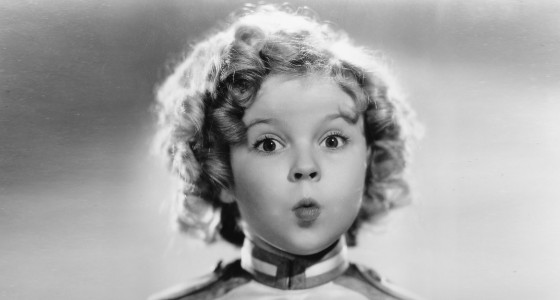Shirley Temple, the child star phenomenon of the 1930s who went on to a career in international diplomacy, died Tuesday in California at age 85.
A statement from her family provided to news organizations said she died at home in Woodside, Calif., of natural causes. “She was surrounded by her family and caregivers,” the BBC quoted the statement as saying. “We salute her for a life of remarkable achievements as an actor, as a diplomat, and… our beloved mother, grandmother [and] great-grandmother.”
Shirley Temple was a child prodigy with a non-stop movie hits starting with “Little Miss Marker” in 1934. She went on to entertain America and the world during the Depression keeping 20th Century Fox alive and well. At just 10, Shirley Temple was one of the nations top wage earners. By 1938 she was making $10,000 a week, a staggering sum in those days.
Unfortunately, Temple was not going to survive the transition to adult performer like others and her acting career would come to a grinding halt. Instead, she focused her efforts on Government. She unsuccessfully ran for Congress, but became a U.S. representative at the United Nations, ambassador to Ghana, U.S. chief of protocol under President Gerald Ford and President George H.W. Bush’s ambassador to Czechoslovakia.
But in her heyday, Temple was a national treasure and an American icon, as big a star around the world as Greta Garbo or Charlie Chaplin. And though, except for a brief TV stint in the late ’50s, Temple was never onscreen after the 1940s, subsequent generations grew up with her films on television and video.
According to Variety:
“In 1958 she appeared on television as host and occasional actress in NBC fairy-tale anthology series “The Shirley Temple Storybook.” It lasted a year.
Another effort, “The Shirley Temple Show,” in 1960, was similarly unsuccessful, but Temple Black made guest appearances during the early 1960s on programs including “The Red Skelton Show” and “Sing Along With Mitch.”
In January 1965, she starred in the sitcom pilot “Go Fight City Hall,” in which she portrayed a social worker, but the show never went to series.
What began as volunteer charity work and a commitment to environmental causes led to Temple running for Congress in 1967. She lost to Pete McCloskey. Active in Richard Nixon’s 1968 election campaign, she was rewarded by the president with an appointment as a U.S. delegate to the United Nations. Her work led to her appointment as a delegate to the International Environmental Council in 1972.
That year she underwent a mastectomy to remove a malignant tumor. She received 50,000 letters of sympathy and went on to speak publicly about breast cancer, which at the time was not discussed widely.
Temple Black sat on the boards of corporations and organizations including the Walt Disney Co. and the National Wildlife Federation.
In 1974, President Gerald Ford appointed her ambassador to Ghana and in 1976 he brought her back to Washington as the first woman chief of protocol.
After Ford lost the 1978 election, she returned home. A decade later, George W. Bush named her as ambassador to Czechoslovakia.
In 1999 Temple Black hosted AFI’s “100 Years… 100 Stars” special on CBS.
Her autobiography, “Child Star,” was published in 1988, and in 2001, she served as a consultant on an ABC telepic adaptation called “Child Star: The Shirley Temple Story.”
Temple received the Kennedy Center Honors in 1998 and the Screen Actors Guild’s life achievement award in 2005.
Black and Temple remained married until his death in 2005.”

